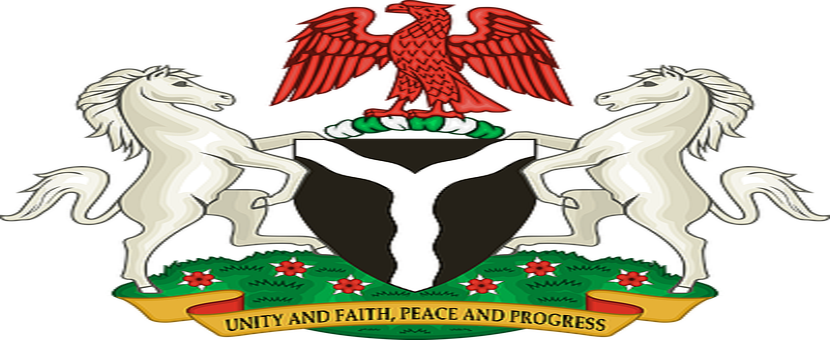A. G. Federation v. A. G. Anambra State [2018] 6 NWLR (Pt. 1615) 314 at 338, paras. G-H, per Okoro, JSC:
It must be noted that there is a clear difference between the “Federation” or “Federal Republic of Nigeria” on the one hand and “Government of the Federation” or “Federal Government”. Whereas the Federation refers to the federating units comprising of all the States and the Federal Capital Territory, the Federal Government or Government of the Federation refers to the Executive arm of the Government, which contrasts with the legislative powers and judicial powers domiciled in the National Assembly and the Judiciary respectively. See sections 4, 5 and 6 of the 1999 Constitution of the Federal Republic of Nigeria (as amended), A. G. Kano State v. A. G. Federation (2007) 6 NWLR (Pt. 1029) 164 at 184-185 paras. H-B.
Notes
The distinction between the “Federation” or “Federal Republic of Nigeria” on the one hand and “Government of the Federation” or “Federal Government” on the other hand, drawn above is necessary because more frequently, these terms are erroneously being used interchangeably. Also, this distinction is equally important for the purpose of determining when to invoke the original jurisdiction of the Supreme Court.
What happened in the case was that the Plaintiff being the Attorney General of the Federation while invoking the original jurisdiction of the Supreme Court filed the instant suit against the Anambra State Government seeking declaratory and injunctive reliefs in respect of a parcel of 148.337 hectares of land at Amansea, Awka North Local Government Area of Anambra State which he claimed was lawfully acquired by the Federal Government in 1992 but the rights therein were revoked by the Anambra State Government. It was clear from the Plaintiff’s Statement of Claim that the land in question was granted by the Anambra State Government to the Federal Ministry of Lands, Housing and Urban Development in collaboration with the Incorporated Trustees of Association of Allotees of Federal Sites and Services Scheme, Amansea to whom parcels of land had been allotted to erect their homes. The Plaintiff claimed that the subsequent revocation by the Anambra State Government was wrongful and unlawful. The action was initiated at the Supreme Court on the basis that it is a dispute between Anambra State and the Federation in line with Section 232(1) of the 1999 Constitution (as amended) which provides that the Supreme Court shall have original jurisdiction to the exclusion of any other court to determine disputes between the Federation and a State or between States.
The Defendant filed an application challenging the competence of the suit on the ground that, based on the facts disclosed by the Plaintiff, there is no dispute between the Federation and the Anambra State Government to warrant the invocation of the original jurisdiction of the Supreme Court.
Their Lordships took time to consider the points raised. In resolving the issue, the Court defined the term, “Federation” as well as Government of the Federation. By a community reading of Sections 318 and 2(1) and (2) of the Constitution, the apex Court stated: “Simply put, the word Federation means Federal Republic of Nigeria, which presently consists of 36 States and the Federal Capital Territory called Abuja.”
In explaining how the above definition supplied helps in resolving the jurisdictional question posed by the Defendant/Applicant, the Court, per Okoro, JSC continued: “It follows that for a dispute to come within the original jurisdiction of the Supreme Court, the subject matter of the dispute must be a matter in which the interest of the Federation as a unit consisting of the interest of the thirty-six (36) States and the Federal Capital Territory is in issue. In the instant case, the interest of the thirty five other States (excluding Anambra State) and the Federal Capital Territory in the control over and development of the Amansea land in Anambra State must be paramount and clearly seen in the Statement of Claim.”
The Court searched through the said Statement of Claim but found no such existing interest. What was clear was that it was the interest of the erstwhile Federal Ministry of Lands, Housing and Urban Development that was in issue. The Ministry acquired the said land and partitioned it to individuals to build their houses. These individuals formed themselves into an association known as the Incorporated Trustees of Association of Allotees of Federal Sites and Services Scheme, Amansea. In effect, this does not concern the Federation or Federal Republic of Nigeria. The Court held that the acts of Federal Government agencies are not captured under Section 232(1) of the 1999 Constitution (as amended).
In conclusion, the Supreme Court rightly struck out the case, hinting that the proper court for the Plaintiff to ventilate his grievances is the High Court of Anambra State in line with Section 39 (1) (a) and (2) of the Land Use Act, 1976.














